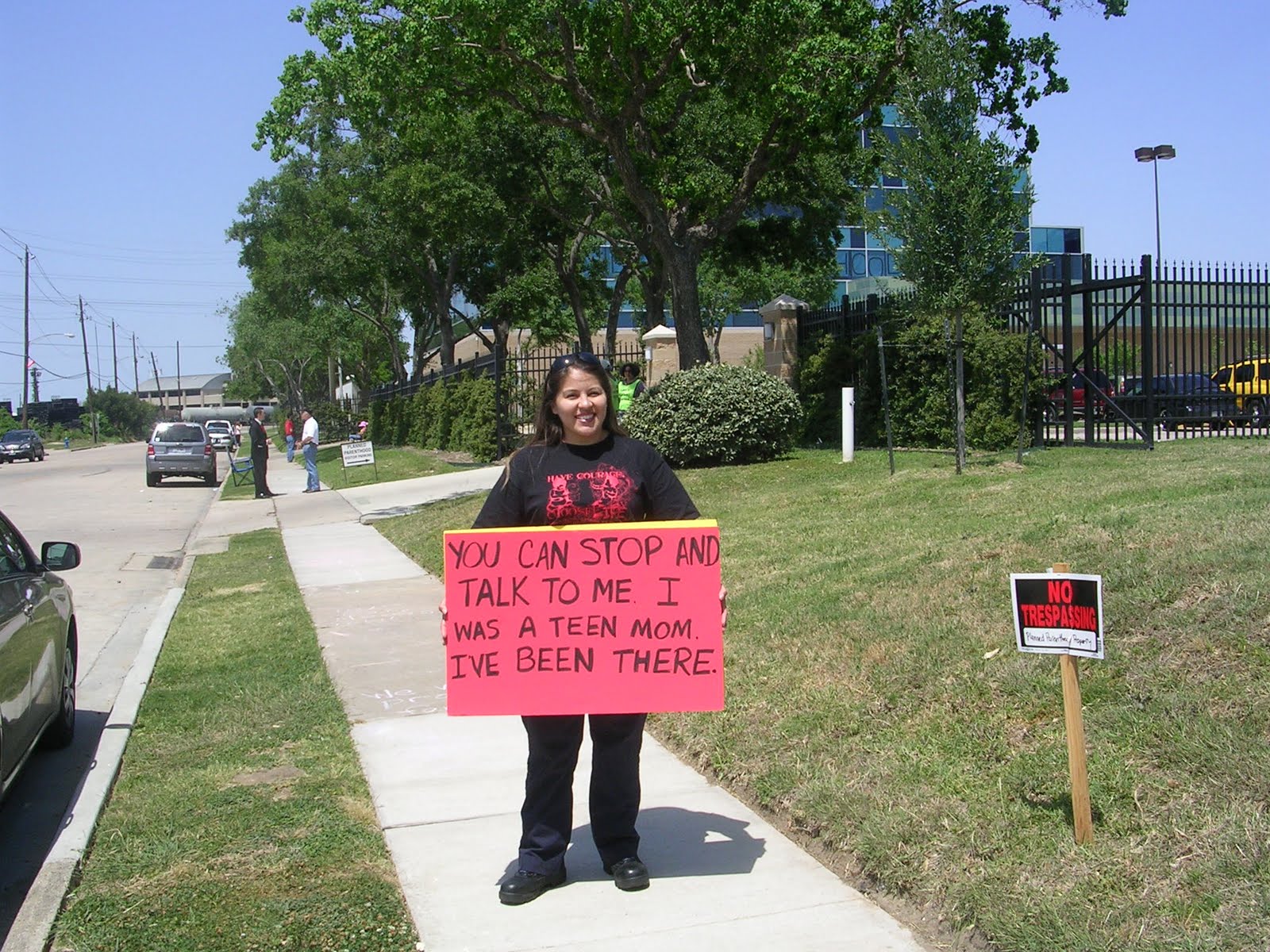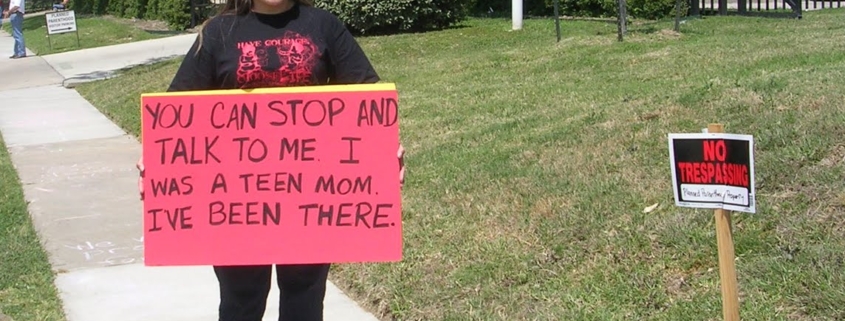Deja vu all over again
 |
| A sidewalk counselor whose sign reads: “You can stop and talk to me. I was a teen mom. I’ve been there.” |
I write today to point out an interesting parallel between two public policy debates that, at first glance, don’t have much to do with one another. But the exact same argument is being used in both.
The Battle of the Buffer Zones. For decades, pro-life advocates have stood outside of abortion centers. Some merely protest or pray; others, the sidewalk counselors, offer alternatives to the mothers going in to the facility. Sidewalk counselors save lives, and the most effective ones can reduce demand enough to make an abortion business unprofitable.
Enter “buffer zone” laws, which purport to ban pro-life advocates from public property like sidewalks within a certain radius of abortion centers. Since nobody wants to claim the financial motive for buffer zones, the abortion lobby instead claims that buffer zones are needed because sidewalk counselors are likely to commit acts of violence within the buffer zone. For example, New Hampshire state senator Donna Soucy recently asserted that her state’s buffer zone law—very similar to the one the Supreme Court unanimously declared unconstitutional two years ago—”balances safety with free speech.”
The pro-life counterargument is that acts of violence are already illegal. The supposed justification for buffer zone laws is clearly unnecessary. Treating the peaceful pro-lifer on the abortion center sidewalk as a presumptive criminal is incredibly offensive, discriminatory, and does nothing to improve safety. It is also a violation of federal law, namely the First Amendment’s guarantee of free speech and the well-established body of law prohibiting viewpoint discrimination in that context.
The Battle of the Bathrooms. This has dominated the news cycle for several months, and has come to a head most notably in North Carolina, which passed a law requiring people to use the bathroom that corresponds to their birth certificate. The measure was a reaction to a Charlotte ordinance extending anti-discrimination protections to LGBT individuals.
Despite the fact that North Carolina’s bathroom law was quite obviously prompted by the T in LGBT, proponents of the birth certificate requirement (both in North Carolina and elsewhere) have suggested a less inflammatory justification: namely, that the requirement promotes safety by keeping male sex criminals out of women’s bathrooms.
What bathroom-bill proponents are asking for is in fact a buffer zone, albeit based on one’s genitalia rather than one’s bioethical views. So the counterargument is easily predicted: committing a sex crime in a public restroom is already illegal. Treating the masculine-appearing or trans person* in the ladies’ room as a presumptive criminal is incredibly offensive, discriminatory, and does nothing to improve safety. And what do you know: it violates federal law, too.
The parallel is striking. But human nature being what it is, people aren’t always consistent. Some of those who appreciate the “it’s already illegal” argument in the context of trans people going to the bathroom ignore it in the context of sidewalk counselors saving lives, and vice versa.
If you accept the argument for one but not the other, please explain yourself in the comments.
* These are, of course, two different things. As many people have pointed out, many trans people “pass” well and thus avoid scrutiny when using the bathroom of their choice, but stick out like a sore thumb when using the bathroom mandated by law. Conversely, women who are XX and have female reproductive organs but do not dress in a traditionally feminine way can be singled out and humiliated for going to the ladies’ room.


Leave a Reply
Want to join the discussion?Feel free to contribute!